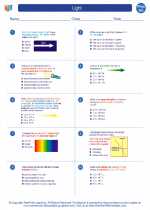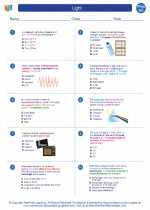Industrial Applications in Physics
Physics plays a crucial role in various industrial applications, ranging from manufacturing processes to energy production and transportation. Understanding the principles of physics is essential for optimizing industrial processes and developing new technologies.
Study Guide for Industrial Applications in Physics
1. Mechanics
Study the principles of mechanics, including Newton's laws of motion, momentum, and energy. Understand how these principles are applied in industrial machinery, vehicle design, and material handling.
2. Thermodynamics
Learn about the laws of thermodynamics, heat transfer, and thermal energy conversion. Explore how these principles are utilized in power plants, refrigeration systems, and industrial heating processes.
3. Electricity and Magnetism
Understand the fundamentals of electricity, magnetism, and electromagnetic induction. Study their applications in electric motors, generators, transformers, and electrical systems in industrial settings.
4. Optics and Light
Explore the principles of optics, including reflection, refraction, and the behavior of light. Investigate how these principles are used in industrial imaging, laser technology, and optical communication systems.
5. Modern Physics
Gain an understanding of modern physics concepts such as quantum mechanics, nuclear physics, and atomic structure. Learn about their applications in industrial processes like nuclear power generation, material analysis, and advanced imaging techniques.
6. Practical Applications
Study specific industrial applications of physics, such as control systems, automation, robotics, and materials science. Explore case studies and examples of how physics principles are employed to improve efficiency, reliability, and safety in industrial operations.
.


